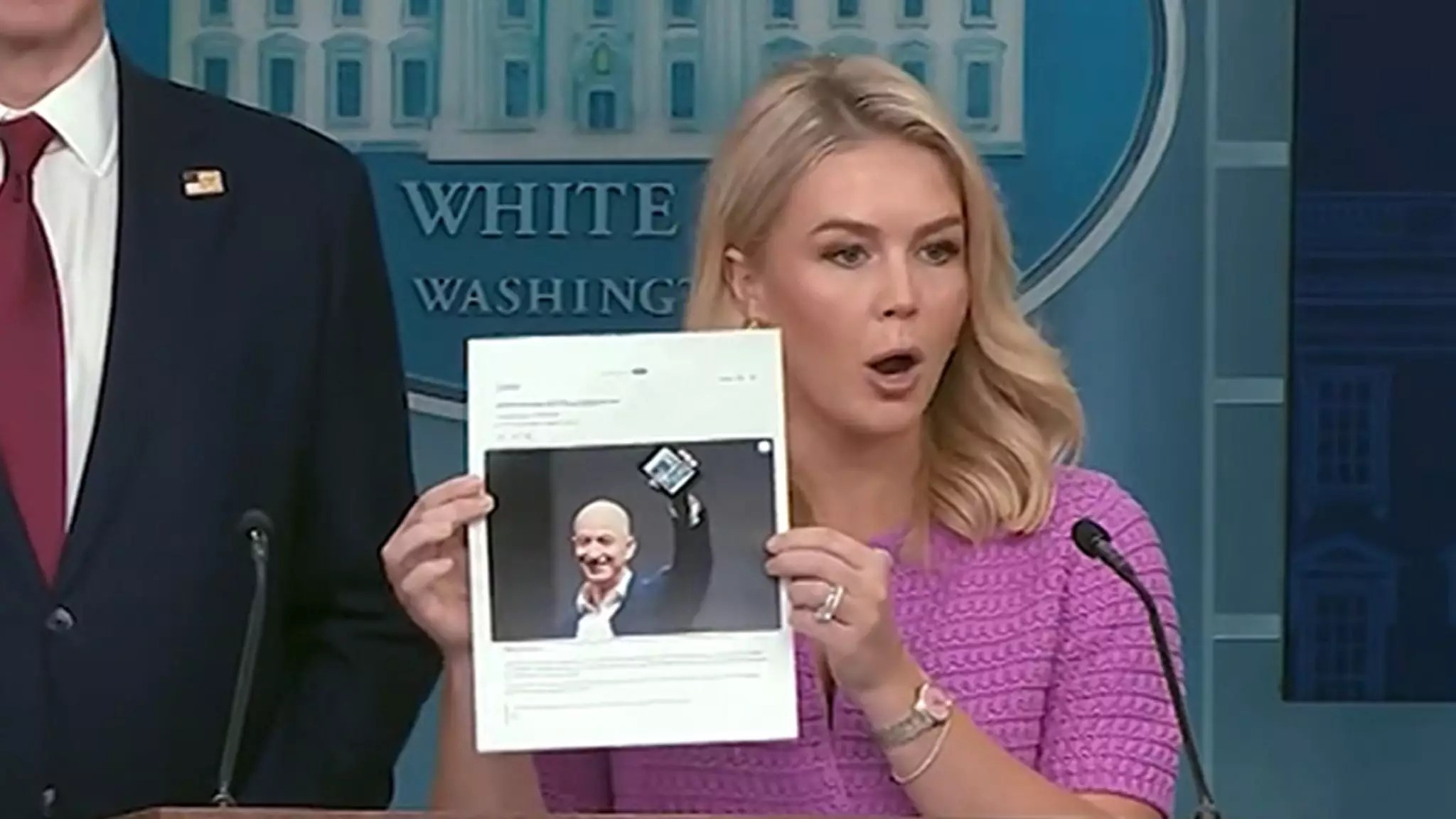In a move described as “hostile” by White House Press Secretary Karoline Leavitt, a proposed feature by Amazon has ignited a political uproar. During a recent press briefing, Leavitt criticized Amazon for allegedly planning to highlight how much prices are inflated due to tariffs imposed during the Trump Administration. This intended feature came under scrutiny for its timing and perceived political motivations, as many are questioning why similar transparency was not provided during the Biden Administration regarding inflation rates.
Leavitt’s vehement reaction is noteworthy given the current political climate, which often sees corporate decisions filtered through ideological lenses. Her comments suggest that corporations like Amazon should be scrutinized when their actions appear aligned with political agendas, especially during times of heightened national discourse about economic challenges. It’s a critical reminder of how intertwined business practices and political sentiments have become.
Amazon’s Response: Disputing the Narrative
Following the uproar, Amazon swiftly distanced itself from the narrative that it planned to implement this feature across its platform. The company clarified that the idea of displaying import charges under certain circumstances was never formalized or intended for the main site. This contradiction highlights the complexities that tech giants face when navigating public relations and political entanglements.
This back-and-forth opens up an important dialogue regarding the role of big corporations in shaping economic perceptions among consumers. When entities as prolific as Amazon take a stand—or are perceived to take a stand—on political frameworks, the repercussions can ripple through the economy and consumer behavior. It raises the question: Should corporations avoid political discussions altogether, or can they manage to remain transparent without implicating themselves in partisan debates?
The Political Playing Field
Leavitt’s assertion about the supposed partnership between Amazon and a Chinese propaganda entity adds yet another layer to this narrative. Although the article cited was from 2021, its re-emergence in a heated moment illustrates how past allegiances can be weaponized in political fights. This tactic is counterproductive, as it goes beyond the immediate context of the Amazon feature, shining a light on the broader issue of corporate responsibility in reporting relationships that might not be aligned with American interests.
In this context, it is also essential to address the economic arguments made during the press conference. Treasury Secretary Scott Bessent’s claim that China might suffer job losses due to tariffs places emphasis on the long-term implications of these policies. The collision of economic theory with political implementation often creates friction, as stakeholders frequently differ on what policies yield the best outcomes for working-class Americans.
The Intersection of Economic Policy and Consumer Choice
As consumers navigate these turbulent waters, the power dynamics between corporations, government, and the public become increasingly transparent. The debate surrounding Amazon’s proposed feature embodies the struggle between consumer awareness and political posturing. Are corporate price adjustments driven by public policy to be viewed as justifiable information-sharing, or does this border on politicizing ordinary commerce? Without doubt, the implications of such features could shape public opinion and impact purchasing habits on a mass scale.
Ultimately, this situation underscores the necessity for corporations to tread carefully when wading into political conversations. Transparency can be a powerful tool, but it can also backfire if misaligned with consumer sentiment, leading to broader skepticism about the company’s motivations. In the age of information, where every decision is scrutinized, Amazon, like many corporations, must balance business acumen with social responsibilities in a polarized environment.







Leave a Reply